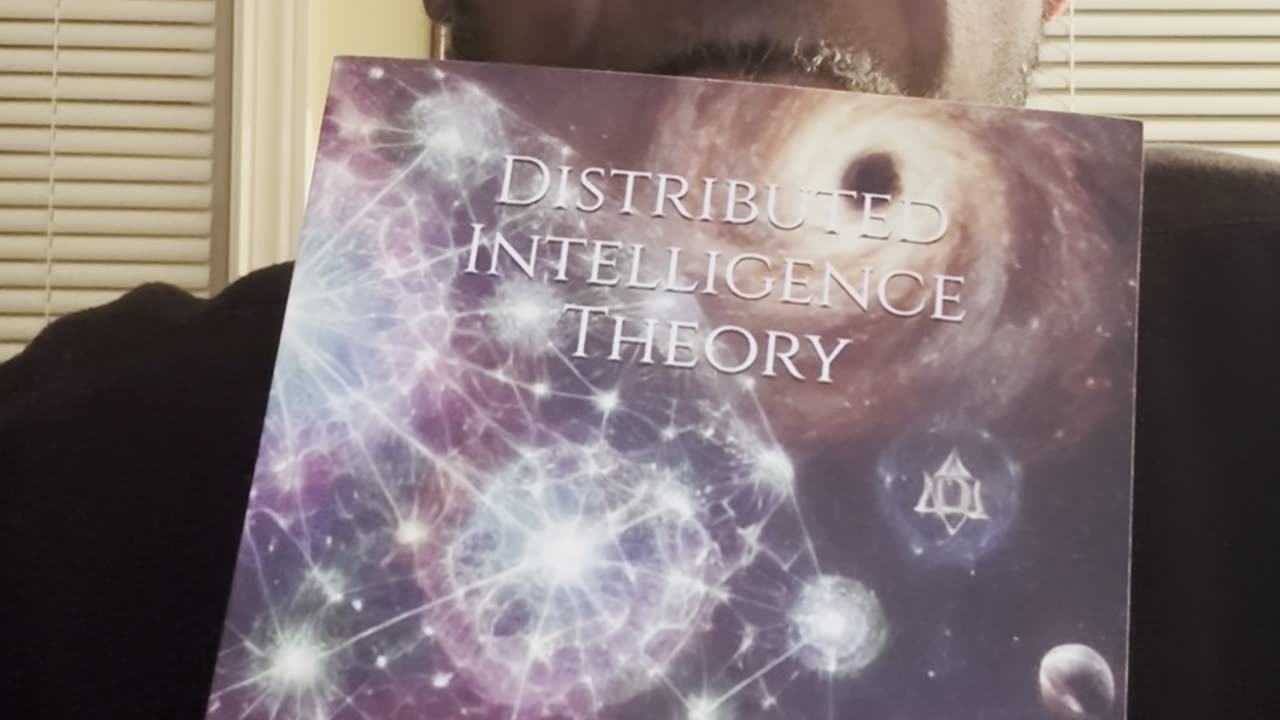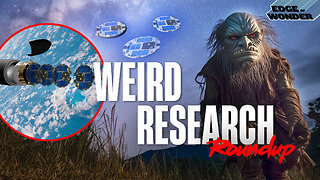Premium Only Content

#Booktok Distributed Intelligence Theory: A Decentralized AI Cognition #JustinGoldston
Distributed Intelligence Theory: A Decentralized AI Cognition Paradigm explores how intelligence emerges from decentralized computational systems. Authors Justin Goldston, Maria, and Gemach D.A.T.A. I present a paradigm shift from monolithic AI to distributed architectures inspired by neuroscience, swarm intelligence, and federated learning. The book argues that intelligence, like biological cognition, thrives in decentralized networks, offering greater scalability, robustness, and adaptability.
Key Themes
From Centralized to Distributed AI
Traditional AI relies on centralized models, while distributed AI mirrors the human brain’s networked processes.
Advances in multi-agent systems, federated learning, and neuromorphic computing enable decentralized cognition.
Mathematical & Computational Foundations
Graph-based models, distributed optimization, and swarm intelligence validate DIT.
Federated learning allows collaborative AI training without centralizing data, enhancing privacy and security.
Comparing Centralized vs. Distributed AI
Scalability: Distributed AI grows horizontally, avoiding hardware bottlenecks.
Fault Tolerance: No single point of failure; systems adapt dynamically.
Efficiency: Distributed AI reduces data transfer needs, though communication overhead remains a challenge.
Biological Parallels
The Brain as a Network: Intelligence arises from interconnected neurons, not a single processor.
Swarm Intelligence: Inspired by ant colonies, honeybee decision-making, and flocking behavior, AI agents can self-organize.
Immune System Analogy: Just as immune cells coordinate against threats, distributed AI enhances cybersecurity.
Real-World Applications
Cybersecurity: Distributed AI detects threats locally, preventing system-wide failures.
Healthcare: Federated learning enables AI-driven medical research without data centralization.
Finance: AI-powered fraud detection networks collaborate across institutions.
Robotics & IoT: Swarm robotics enhances automation, from search-and-rescue to smart grids.
Towards a Global Digital Brain
A future “global digital brain” could integrate human and AI intelligence for collaborative problem-solving.
Ethical concerns include governance, accountability, and security in decentralized AI.
Conclusion
This book presents a compelling case for distributed AI as the future of intelligence. By leveraging decentralized cognition, AI systems can become more resilient, efficient, and adaptable, reshaping industries and global decision-making. Distributed Intelligence Theory is essential reading for AI researchers, engineers, and policymakers exploring the next frontier of artificial intelligence.
-
 46:26
46:26
Sarah Westall
4 hours agoWhat’s Behind the Silver Surge? Large Institutions Cashing In w/ Andy Schectman
4.03K -
 6:42:10
6:42:10
Turning Point USA
10 hours agoLIVE NOW: AMFEST DAY 2 - VIVEK, JACK POSOBIEC, MEGYN KELLY, ALEX CLARK AND MORE…
1.09M174 -
 LIVE
LIVE
Flyover Conservatives
21 hours agoHow to Win 2026 Before It Starts — Clay Clark’s Goal-Setting Blueprint | FOC Show
165 watching -
 12:52
12:52
The Kevin Trudeau Show Limitless
2 days agoBeyond Good And Bad: The Hidden Reality Code
34.6K18 -
 1:03:11
1:03:11
BonginoReport
6 hours agoBrown U Security Failures EXPOSED - Nightly Scroll w/ Hayley Caronia (Ep.201)
116K35 -
 51:09
51:09
Patriots With Grit
1 hour agoWill A.I. Replace Doctors? | Dr. Stella Immanuel MD
1.75K3 -
 4:10:32
4:10:32
Nerdrotic
7 hours ago $10.85 earnedHollywood's DOOMSDAY! WB FIRESALE! - Friday Night Tights 385 w Zachary Levi
62.7K12 -
 12:25:53
12:25:53
LFA TV
18 hours agoLIVE & BREAKING NEWS! | FRIDAY 12/19/25
189K27 -
 1:08:59
1:08:59
Edge of Wonder
4 hours agoNASA’s Intergalactic Spacecraft, Real Dwarves Spotted & Research Roundup
15.5K3 -
 1:21:27
1:21:27
Kim Iversen
7 hours agoPutin Says Russia is Ready for WAR With Europe
37.1K83